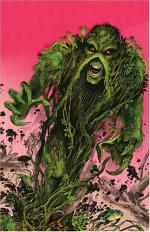|
This section contains 1,971 words (approx. 7 pages at 300 words per page) |

|
Overview
According to the ancient theory of spontaneous generation, living organisms could originate from nonliving matter. During the seventeenth and eighteenth centuries, however, naturalists began to conduct experiments that challenged the doctrine of spontaneous generation. After Francesco Redi published his Experiments on the Generation of Insects, the spontaneous-generation debate was essentially limited to microscopic forms of life. During the eighteenth century, the French naturalist Georges Buffon and the English microscopist John Turbeville Needham carried out a series of experiments that seemed to support the doctrine of spontaneous generation, but their conclusions and experimental methods were challenged by the Italian physiologist Lazzaro Spallanzani. After conducting a series of rigorous experiments on the growth of microorganisms, Spallanzani vigorously challenged the belief in spontaneous generation. Spallanzani claimed that Needham had not heated his tubes enough and that he had not sealed them properly.
Background
According to the...
|
This section contains 1,971 words (approx. 7 pages at 300 words per page) |

|


